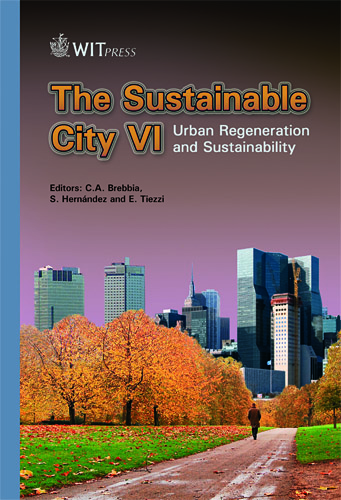Evaluation Of Urban Planning Strategies With A Versatile Urban Growth Model
Price
Free (open access)
Transaction
Volume
129
Pages
11
Page Range
227 - 237
Published
2010
Size
1,210 kb
Paper DOI
10.2495/SC100201
Copyright
WIT Press
Author(s)
D. Vye & F. Rousseaux
Abstract
La Rochelle, France witnessed an important growth of its permanent and seasonal population during the second half of the twentieth century. Its attractive coastal position is the main reason for this increase, which led to a massive urban spread, particularly in La Rochelle peripheral municipalities. Which are the strategies used by local public authorities to take into account social and environmental problems? While it has been very innovative since 1970 in regard to urban ecology and sustainable development, does La Rochelle still have today the capacity to tend towards the \“ideal sustainable city”? On the contrary, is La Rochelle powerless, or even more complicit in the urban sprawl phenomenon? The purpose of this paper is to focus on one factor that particularly influences urban growth: local urban policies and planning strategies through planning documents analysis. For this, an urban growth model based on a cellular automata paradigm is used. In this model, the space is described as a grid, for each non built cell, with a graduated probability of building. This probability of building is based on the analysis of planning rules (e.g. urban planning regulation framework). The example of the correlation between these planning rules and local urban growth is described in this paper. The model enables the simulation of alternative urban growth scenarios. It helps one to estimate how alternative planning could affect non built areas. This model aims at helping the elaboration of future planning documents. The control of La Rochelle’s urban spread is one of the main stakes to be taken into account in the future land development plan (Schema de COherence Territoriale: SCOT). The SCOT is currently being elaborated in La Rochelle. Keywords: planning strategies, sustainable city, GIS, modelling, urban spread.
Keywords
planning strategies, sustainable city, GIS, modelling, urban spread





